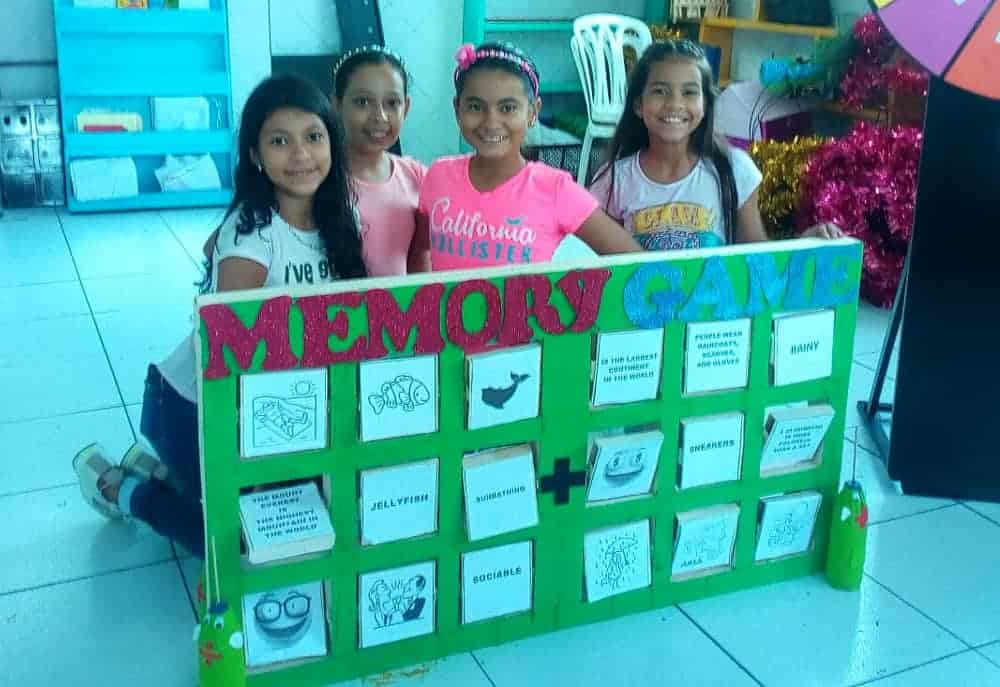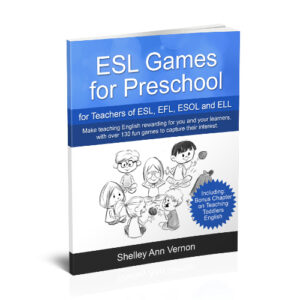There are many ways to make learning fun, but one of the most exciting and rewarding ways to teach English is using games. Fun ESL games not only engage children but also teach through play. In addition, they often don’t know they are learning until it comes time to show their knowledge. So, it truly is possible to create a classroom where students learn and enjoy.
Learning is quicker; retention improves
Nguyen Thi Thanh Huyen and Khuat Thi Thu Nga, authors of Learning Vocabulary Through Games: The Effectiveness of Learning Through Games, interviewed teachers for their research. They reported that their students learned new vocabulary more quickly and retained it better when in a relaxed and comfortable environment. And playing ESL games creates that atmosphere.
Building Interest in Class
As teachers, we all know that some students don’t want to be in our class. In addition, even the best students can get bored or lose focus. Therefore, including games is a great way to get out of the rut. Use games instead of language drills, worksheets, tedious repetition, and individual study. ESL games make learning fun and revive students’ interest. In addition, games help students absorb and retain more information than if they just study to pass a test or complete an assignment.
Karen DeBord, an Extension Specialist for Rural Child Care at Virginia Polytechnic Institute and State University-Blacksburg, explains how competition can help students learn more. As long as no one is forced to participate, competition can be positive and encourage player discovery, examination and learning. Creating the right type of games can foster this healthy, beneficial competition in the classroom. In addition, competition can make learning fun as long as students are old enough to handle the possibility of losing!
Putting Language in meaningful Context
Let’s face it: it is one thing to memorize a bunch of vocabulary words or be able to recite the mechanics of a grammar rule, but putting these lessons to use is another story. Games solve this because they allow the entire class to engage in activities that require practical use.
When children get this meaningful and contextual practice, English becomes more vivid in their minds and easier to remember. In addition, the confidence children gain with speaking skills means that they are more likely to go out into the real world and use what they have learned. This result is achieved through games and having to think for themselves instead of being constantly spoon-fed.
Giving your pupils a break
Some children find learning a new language stressful, so using games as a vehicle can help shy children come out of their shells and allow any tension to dissipate. Appropriate games enable the teacher to give students a break from the monotony of endless sitting while maximizing the learning opportunities in the available time. Students will be so immersed that they will not even realize how much they are learning.
Creating a student/teacher bond
Finally, as a teacher, I’m sure you want to build a bond with your students. Playing games does this in so many ways. First, you’ll be able to show yourself as a person, not just a teacher, as you cheer on and encourage your students to do well. Furthermore, you can get to know your students personally when you play (or facilitate) a game with th

Make learning fun with these resources !
-
ESL Tutoring
Teach Your Child English
Rated 0 out of 5€19.97Original price was: €19.97.€15.33Current price is: €15.33. Add to cart -
Games
Preschool games book
Rated 0 out of 5€19.97Original price was: €19.97.€11.97Current price is: €11.97. Add to cart
-
Games
ESL Games book for primary & middle school children
Rated 5.00 out of 5€19.97Original price was: €19.97.€15.33Current price is: €15.33. Add to cart




